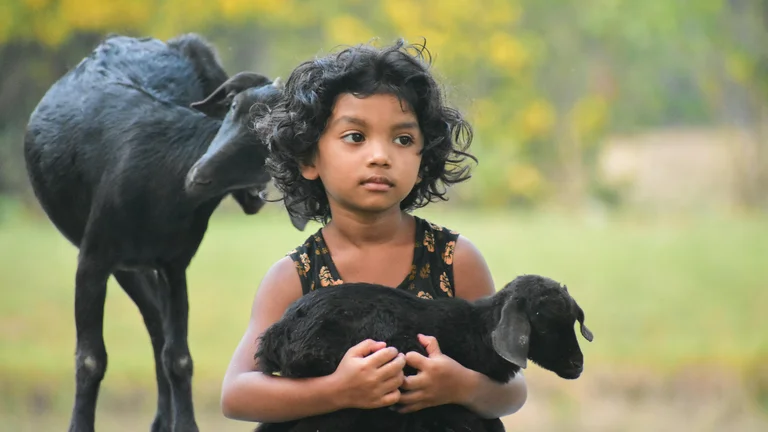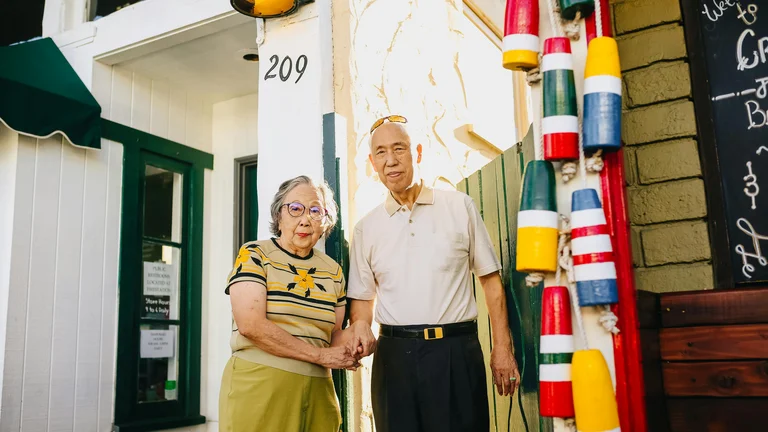The Charm of Drunken Confessions in K-Dramas

In Korean dramas, or K-Dramas, drunken confessions are a recurring, cherished trope that conveys a distinct mix of vulnerability, humor, and emotional transparency. The charm lies in how these scenes break down social facades and unleash raw, heartfelt admissions that characters might suppress when sober. These moments often act as pivotal narrative turning points, revealing true feelings, untold secrets, or hidden desires in a way that feels spontaneous and genuine. The combination of innocence and intoxication generates a unique atmosphere — one where awkwardness meets intimacy, and characters’ emotional walls crumble amid slurred words and unsteady movements.
Drunken confessions in K-Dramas are not mere plot devices; they are artfully executed scenes that play on cultural nuances of drinking in Korea, social hierarchies, and the indirect nature of emotional expression. Traditionally, many Koreans find it difficult to voice their inner thoughts openly, especially if it involves romantic feelings or personal vulnerabilities. Alcohol serves as a socially acceptable lubricant to ease these constraints temporarily, allowing for honesty that might otherwise remain buried. The adorability stems from the imperfect, sometimes clumsy ways characters navigate their tipsy revelations, blending comedic flair with tender moments.
Moreover, these scenes often highlight the relational dynamics between characters. When one character confesses feelings or thoughts while drunk, the sober partner’s reactions — ranging from shock, amusement, embarrassment, or affectionate teasing — further enhance the emotional texture. This interplay adds depth to character development and strengthens the viewers’ investment in their evolving relationships. It’s this genuine emotional resonance combined with endearing awkwardness that cements drunken confessions as one of the most beloved elements in K-Drama storytelling.
Iconic Examples of Adorable Drunken Confessions in K-Dramas
Several K-Dramas have showcased unforgettable drunken confession scenes that perfectly capture the blend of humor and heartfelt emotion. These moments are often quoted and fondly remembered by the fan communities due to their relatability and charm. Here, we highlight some quintessential examples that define the trope and showcase its narrative and emotional impact.
In the wildly popular drama “Weightlifting Fairy Kim Bok-joo”, the drunk confession scene between Bok-joo and Joon-hyung stands out due to its naturalism and sweetness. After sharing drinks, Bok-joo’s tipsy, unrestrained confession of her feelings catches Joon-hyung off-guard yet deeply moves him. The scene balances humor—the way Bok-joo fumbles her words and Joon-hyung’s embarrassed flustered reaction—with sincere affection. This establishes a solid emotional foundation between the characters, making it a milestone in their relationship.
“Goblin” (Guardian: The Lonely and Great God) also offers a memorable drunk confession moment where Ji Eun-tak unwittingly reveals her feelings towards the Goblin while under the influence. The fantastical backdrop contrasts beautifully with the vulnerability exposed by her alcohol-fueled honesty. This tender moment resonates with viewers because it reveals layers of emotional complexity beneath Eun-tak’s cheerful and resilient exterior.
Another perfect example can be found in “My Love From the Star”, where Cheon Song-yi’s casual but direct drunken declarations break down the barriers she typically erects as a confident yet guarded woman. Her uninhibited honesty during these scenes provides comedic relief while advancing the romantic tension and deepening her relationship with Do Min-joon.
Each of these examples demonstrates a core aspect of why drunken confessions are so cherished: they allow characters to drop masks and express authentic feelings in ways impossible when fully sober. There’s a universal appeal in watching someone’s defenses dissolve, even for a brief moment, revealing truths that redefine relationships. This mixture of humor, awkward charm, and emotional weight is key to their success and memorability.
Elements That Make K-Drama Drunken Confessions Adorable
To understand why these scenes stand out, it’s essential to break down the factors contributing to their appeal. The adorability of K-Drama drunken confessions stems from a combination of writing, acting, cultural context, and the unique emotional atmosphere they generate.
1. Vulnerability Unmasked: In sober situations, characters often maintain composure or hide their feelings behind sarcasm or silence. Alcohol lowers inhibitions, allowing true emotions to surface. This vulnerability invites empathy from viewers, as honesty—especially emotional honesty—is inherently relatable and endearing.
2. Comic Timing and Physicality: The awkward, unsteady physicality of drunken characters adds a layer of humor to otherwise serious admissions. Slurred speech, teary eyes, unexpected outbursts, and clumsy hugs create a naturally entertaining yet heartfelt dynamic. This comedic aspect softens potentially heavy emotional scenes, making them feel lighter and more approachable.
3. Contrast Between Sober and Drunk States: The juxtaposition of a usually controlled character suddenly revealing raw feelings under alcohol’s influence creates dramatic tension and charm. This contrast highlights inner conflicts and previously unseen dimensions of personalities.
4. Reactions from Other Characters: Equally crucial is how other characters respond. Their mixture of surprise, amusement, teasing, or gentle care enriches the scene’s emotional landscape. This interplay often reinforces bonds and progresses romantic arcs.
5. Cultural Relevance: Drinking culture in Korea is deeply embedded in social interaction. Scenes of drinking often mirror real-life group bonding or moments of personal introspection. By situating confessions within this context, K-Dramas create scenes that feel authentic, culturally grounded, and meaningful rather than contrived.
Table: Comparison of Adorable Drunken Confessions Across Popular K-Dramas
| K-Drama | Characters Involved | Type of Confession | Tone of Scene | Impact on Story |
|---|---|---|---|---|
| Weightlifting Fairy Kim Bok-joo | Kim Bok-joo & Joon-hyung | Romantic feelings | Sweet and humorous | Turns point for relationship development |
| Goblin | Ji Eun-tak & Goblin | Hidden affection and bond | Tender with fantastical elements | Reveals deeper emotional ties |
| My Love From the Star | Cheon Song-yi & Do Min-joon | Emotional honesty | Comedic and sincere | Advances romantic tension |
| Strong Woman Do Bong-soon | Do Bong-soon & Ahn Min-hyuk | Admiration and romantic hints | Playful and earnest | Builds foundation of affection |
| Reply 1988 | Sung Deok-sun & Choi Taek | Shy confessions of love | Innocent and awkward | Highlights character growth |
This table illustrates the diversity of drunken confession scenes in K-Dramas. Each example has its own style and tone but shares the core feature of adorable vulnerability that endears viewers and drives narrative momentum.
How Actors Portray Drunken Confessions with Authenticity
Creating believable and endearing drunk confession scenes requires a delicate balance from actors. The performance must avoid exaggerated caricature while still portraying the altered state caused by alcohol. The goal is to maintain authenticity, ensuring that scenes resonate emotionally without feeling fake or forced.
Actors often prepare by studying real drinking behavior—how speech patterns alter, facial expressions change, and movements become less controlled. They incorporate subtle slurs and pauses rather than loud or slapstick drunkenness. The delivery of confessions is key: Lines slurred just enough to sound natural but clear enough for emotional weight to come through.
Facial expressions convey a wide range of feelings: embarrassment, courage, guilt, or tenderness. Eye contact might be fleeting or overly intense, adding layers to character interaction. Body language includes swaying, light staggering, or seeking physical support from another character, emphasizing vulnerability.
A particularly important aspect is the chemistry between actors during these scenes. Reactions must be spontaneous and nuanced, responding realistically to unexpected confessions while maintaining the intimate atmosphere. This genuine give-and-take creates a strong connection that enhances believability.
Directors often employ close-up shots to capture these subtleties, leveraging tight framing to focus on expressive details like trembling lips or misty eyes. Background music is typically minimal or gentle, placing emphasis squarely on the characters’ interaction. The resulting atmosphere feels like a quiet confession between two people isolated from the outside world, intensifying emotional impact.
Real-World Applications: Why Drunken Confession Scenes Resonate Globally
Beyond entertainment, these scenes connect with global audiences by tapping into universal human experiences around vulnerability and honesty. Many viewers recognize the awkward but sincere nature of expressing true feelings under lowered inhibitions. This relatability extends cross-culturally, despite differences in drinking customs or social norms.
The common experiences of love, friendship, and self-discovery portrayed in these moments encourage empathy. They subtly affirm that everyone has hidden emotions that surface irregularly, fostering a sense of shared humanity. The combination of humor and affection makes these scenes comforting as well as emotionally satisfying.
For fans of language and cultural studies, these scenes also provide insight into Korean social interactions and emotional expression norms. They reveal how indirect language might give way to forthrightness when alcohol lowers social barriers.
From a psychological perspective, the trope illustrates interesting dynamics of inhibition disinhibition theory—alcohol reducing the cognitive filters that normally regulate behavior, causing suppressed feelings to surface. Watching characters navigate this flux offers a clinical yet warmly human look at emotional processes.
List: Key Tips to Creating an Adorable Drunken Confession Scene in K-Dramas
- Ensure emotional authenticity: Confessions must feel sincere and relatable, not forced or exaggerated.
- Balance humor and vulnerability: Slurred speech and clumsiness add charm without undermining emotional depth.
- Show the contrast: Highlight differences between characters’ usual behavior and their drunken openness.
- Focus on non-verbal cues: Eye contact, facial expressions, and body language enhance meaning beyond words.
- Carefully direct reactions: Sober characters’ responses should complement confession tone, providing warmth, teasing, or concern.
- Use setting and music to frame mood: Intimate, quiet settings with minimal soundtrack spotlight the confession’s significance.
- Avoid caricatured drunkenness: Portray intoxication subtly with naturalistic acting choices.
These guidelines help dramatize the emotional nuances necessary to make drunken confession scenes resonate and remain memorable for audiences.
Step-by-Step Breakdown: How a Drunken Confession Scene Unfolds in Typical K-Drama Episodes
Understanding the structural flow of these scenes clarifies why they hold such compelling charm. A typical sequence often follows these steps:
First, the characters share a bonding moment that involves drinking—whether during a casual night out, a celebration, or a stressed moment seeking solace. This step establishes the social context and lowers tension.
Next, one character, more affected by alcohol, begins to loosen emotionally. The scene carefully shows physical signs of intoxication: flushed cheeks, slower speech, occasional hiccups, and reduced inhibitions.
Then the confession itself arrives. This can be direct—a declaration of love, apology, admission of insecurities—or indirect through rambling or half-articulated feelings. The confession’s nature depends on personality and storyline context, but it’s always heartfelt.
During this confession, the camera often shifts to the other character’s face, capturing a range of reactions from surprise to amusement to embarrassment. Their silent or verbal responses can range from subtle smiles to teasing remarks or protective gestures, depending on the relationship dynamic.
Finally, the scene concludes with the aftermath: either a tender moment of connection like a hug or blush, or comedic fallout such as the confessor falling asleep or denying their words the next day. These closures provide narrative momentum moving forward.
Analysis of Emotional Impact: Why Fans Love Drunken Confessions in K-Dramas
Fans connect deeply with these scenes because they humanize characters in a way scripted dialogue often cannot. The unpredictability and spontaneity behind drunken confessions make characters feel more real. This emotional rawness appeals to viewers’ desire for authenticity within fictional worlds.
Moreover, these moments serve as emotional turning points that foreshadow future developments. Fans often eagerly anticipate them, understanding their importance as catalysts for relationship progression or self-revelation. The unexpected honesty offers hope and excitement, fulfilling romantic or narrative expectations.
The adorability factor emerges from characters’ awkwardness and fallibility. Instead of perfect romantic leads, they are flawed individuals facing fears and desires head-on. This relatability makes drunken confessions emotionally satisfying and endearing.
Fan communities frequently share clips and quotes from these scenes, underscoring their cultural significance and timeless appeal. The scenes invite repeat viewing and discussion, contributing to K-Dramas’ global popularity.
Table: Emotional Tones and Outcomes of Iconic Drunken Confession Scenes
| Drama | Emotional Tone | Character Vulnerability | Resulting Outcome |
|---|---|---|---|
| Weightlifting Fairy Kim Bok-joo | Light-hearted, tender | Open romantic feelings | Strengthened relationship closeness |
| Goblin | Melancholic, sincere | Unspoken affection revealed | Deepened emotional bonds |
| My Love From the Star | Playful, earnest | Courage to confess fears and love | Enhanced romantic tension |
| Strong Woman Do Bong-soon | Cheerful, shy | Hidden admiration exposed | Progressed romantic subplot |
| Reply 1988 | Innocent, awkward | Childlike vulnerability | Facilitated character growth |
Exploring Variations: Different Types of Drunken Confessions in K-Dramas
While romantic confessions dominate this trope, K-Dramas also explore various other types of drunken admissions that enhance narrative complexity and emotional variety.
1. Friendship Confessions: Characters reveal truths about personal struggles or deepened bonds with friends during drunken exchanges. These moments emphasize platonic love and trust, expanding the trope’s emotional range.
2. Regretful Confessions: Some scenes feature characters apologizing or expressing remorse for past mistakes. The honesty induced by alcohol provides catharsis and potential reconciliation, enriching character arcs.
3. Secret or Hidden Identity Revelations: In fantasy or mystery dramas, drunken moments lead to accidental exposure of hidden truths or secret identities, propelling plot twists.
4. Comedic Drunken Confessions: Lighthearted and intentionally humorous admissions often poke fun at characters’ quirks or embarrassments, reinforcing comedy within the romance or drama.
The diversity of these variations illustrates how the drunken confession formula can be adapted to suit multiple narrative objectives, keeping the trope fresh and engaging.
List: Memorable Drunken Confession Moments — What Makes Them Stand Out?
- Spontaneity: Unsuspecting characters confessing feelings unexpectedly.
- Humor: Incorporation of clumsy or goofy actions alongside sincere words.
- Intimacy: Private settings creating moments of personal closeness.
- Emotional Honesty: Characters’ true selves revealed beyond societal masks.
- Character Growth: Confessions leading to significant changes in relationships or personal journeys.
- Aftermath: The tension or sweetness arising in the sober aftermath of drunken words.
Behind the Scenes: Production Insights on Filming Drunken Confession Scenes
Filming drunken confession scenes involves unique challenges for cast and crew. Actors must convincingly portray varying levels of intoxication without endangering continuity or believability. Multiple takes often focus on capturing authentic emotional expression while maintaining subtle physical cues that suggest drunkenness.
Directors collaborate with actors to dial the intensity of intoxication to fit the scene’s mood. Lighting and camera angles are designed to emphasize intimacy or vulnerability, often using close-ups and soft lighting to amplify emotional expression. The pacing in these scenes is typically slower to allow dialogue and reactions to land fully with the audience.
Scriptwriters carefully craft these moments to balance exposition with natural flow, ensuring that confessions feel authentic rather than forced plot devices. Improvised lines or actor suggestions sometimes make these scenes more organic, contributing to their widespread acclaim.
Conclusion
Drunken confession scenes in K-Dramas remain some of the most compelling and adorable moments for audiences worldwide. They capture the delicate balance between humor and emotion, vulnerability and courage, awkwardness and intimacy. By presenting characters stripped of their social armor—revealing their true thoughts in imperfect yet endearing ways—these scenes forge genuine viewer connections. Rooted deeply in cultural practices surrounding drinking and emotional restrainedness, they offer unique insight into Korean social behavior framed through universally relatable experiences. The artistry in writing, acting, and directing these scenes ensures they not only entertain but also resonate emotionally, creating lasting impact and beloved memories for fans. As such, drunken confessions will continue to be a vital and charming staple of K-Drama narratives.
FAQ - Most Adorable K-Drama Drunken Confessions
Why are drunken confession scenes so popular in K-Dramas?
Drunken confession scenes are popular in K-Dramas because they naturally reveal hidden feelings and vulnerabilities in an entertaining and emotionally impactful way. Alcohol lowers inhibitions, allowing characters to express truths they usually suppress, which creates authenticity and relatability for the audience.
What makes a drunken confession scene adorable rather than just dramatic?
A drunken confession scene becomes adorable through the combination of awkwardness, sincere emotions, gentle humor, and subtle physical cues like blushing or unsteady movements. The balance between vulnerability and playful interactions adds charm beyond pure drama.
Are drunken confessions always romantic in K-Dramas?
While most drunken confessions in K-Dramas focus on romantic feelings, they can also involve friendships, apologies, secret revelations, or comedic admissions. The trope adapts to different contexts but typically centers on honest emotional expression.
How do actors prepare to perform drunk confession scenes authentically?
Actors study real-life drunken behavior to portray natural speech patterns, body language, and emotional shifts. They aim to avoid overacting while conveying vulnerability, using subtle slurring, facial expressions, and physical instability to maintain credibility.
Do drunken confession scenes in K-Dramas reflect Korean culture?
Yes, these scenes reflect Korean drinking culture and social norms where alcohol serves as a social lubricant that lowers barriers for emotional honesty. They showcase how Korean society balances indirect communication with moments of candidness.
Drunken confessions in K-Dramas enchant audiences by revealing characters’ heartfelt emotions through vulnerable, unguarded moments laced with humor and charm. These scenes authentically portray lowered inhibitions and deepen relationships, making them one of the most beloved and adorable tropes in Korean drama storytelling.
Drunken confessions in K-Dramas represent a masterful blend of emotional truth and narrative function. The adorability of these moments arises from their genuine vulnerability, subtle humor, and heartfelt intimacy. This storytelling device not only enriches character development but also engages audiences deeply, creating unforgettable scenes that transcend cultural boundaries. Crafted with careful attention to acting, writing, and cultural nuance, these confessions remain definitive elements that captivate fans and reinforce the appeal of K-Drama romance and drama.






